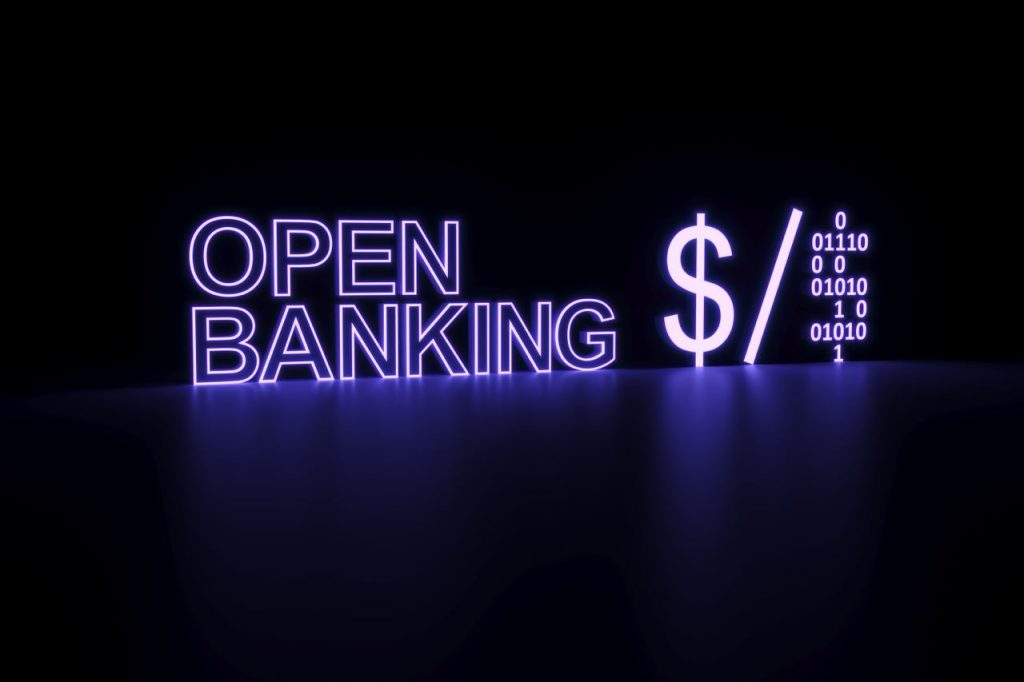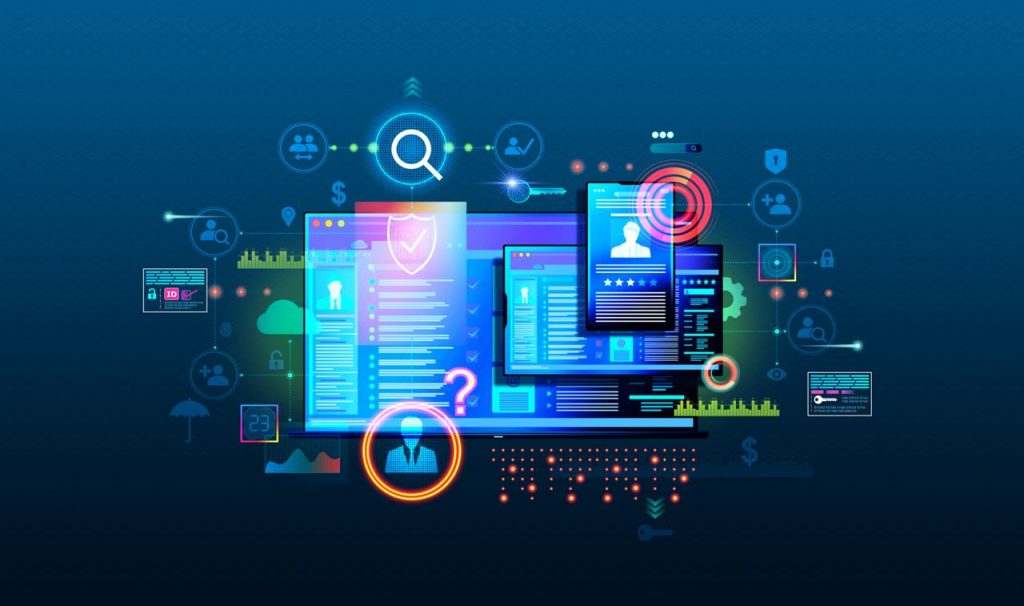Financial technology, or Fintech, is a field that is changing traditional financial services quickly. As of January 2024, the Americas (North America, South America, Central America, and the Caribbean) had the most significant number of fintechs globally. Fintech applications use cutting-edge technologies like biometrics, blockchain, and artificial intelligence to develop new ways to handle different financial tasks. This piece will detail the leading technologies, new ideas, and problems that fintech faces. We’ll also talk about the possibilities and trends that will happen in this exciting field in the future.
Blockchain and Distributed Ledger Technology (DLT)

The creation and upkeep of distributed, immutable, and decentralized records of transactions is made possible by blockchain and distributed ledger technology (DLT). Cryptographic hashes link blocks together to create a chain of blocks that contain these records. Bitcoin and distributed ledger technology (DLT) let financial apps do the following:
- Smart contracts: These deals are permanently stored on the blockchain and take action automatically when certain conditions are met. Smart contracts can make various financial transactions more accessible, including loans, insurance, and derivatives. We at FortySeven help our clients to build complex Smart Contracts, if you need to build one contact our expert.
- Decentralized finance (DeFi): It uses blockchain, cryptocurrencies, and peer-to-peer networks to offer financial services without intermediaries. Applications for DeFi use blockchain and smart contracts to provide services like investing, trading, loans, and borrowing.
- Secure, transparent transactions: By doing away with the need for trusted third parties, lowering fraud, and allowing real-time verification, Blockchain and DLT can improve the security, transparency, and effectiveness of financial transactions.
Artificial Intelligence (AI) and Machine Learning (ML)
AI and ML show machines how to learn from data and do things that generally require smart people to do. Fraud detection: AI and ML algorithms can look at a lot of data and find trends and oddities that point to fraud, which can change financial processes. Also, they can vary based on new fake situations and get better at what they do over time.
- Credit scoring: Using alternative data sources like social media, online behavior, and transaction history by AI and ML algorithms can determine if a borrower is creditworthy. Also, they can make payment offers and suggestions that are fairer and more specific to each person.
- Personalized financial recommendations: Customers’ financial needs, preferences, and objectives can be analyzed by AI and ML algorithms, and they can then be given specific financial recommendations and goods. Also, they can help people get the most out of how they spend, save, and invest their money.
Application Programming Interfaces (APIs)

Different software applications can interact and share data thanks to APIs, which are interfaces. APIs are a key part of making it easier for financial institutions and fintech startups to work together.
- Open banking enables customers to access and share their financial data and services across different providers. APIs allow fintech applications to do the following: To improve customer experiences, boost competition, and encourage innovation in the financial sector, open banking uses APIs.
- Payment solutions: APIs can help customers, merchants, and banks conduct quick, simple, and safe payment transactions. Cross-border payments, mobile payments, and digital wallets can also be made possible by APIs.
Fintech Constantly Improving
Fintech apps are always developing new ways to solve different financial problems and improve their answers. Robotic Process Automation (RPA) is a new technology that helps them do this by automating money-related tasks that are done repeatedly and following rules. By typing, checking, and reporting, among other office tasks, RPA can improve speed, accuracy, and customer satisfaction. It can also give customers faster and more reliable answers and services.
Biometric Authentication, a new technology that verifies users’ identities by their physical or behavioral characteristics, is another way that fintech applications improve security and convenience. Using methods like fingerprint recognition and facial authentication, biometric authentication can be used for many things, like opening gadgets, getting into accounts, and making payments. These new methods demonstrate how fintech applications have changed and grown to meet the shifting needs and preferences of customers and the financial ecosystem.
Regulatory Technology (Regtech) Creating Dynamic FinTech
Regtech, or regulatory technology, is the use of digital devices to make rules and regulations easier to follow in many fields, mainly in the financial industry. Using cloud computing, big data, AI, and machine learning, regtech helps businesses follow complicated and always-changing rules efficiently and cost-effectively. Regtech can also boost safety, accuracy, and customer happiness by simplifying tasks, letting users access data, keeping an eye on transactions, and finding risks. Regtech is a new area that overgrew after the financial crisis of 2008 when people needed more regulatory solutions. The bigger picture of fintech comprises new tools and services for the financial industry. Regtech is a part of this ecosystem.
KYC Automation

Know Your Customer, or KYC, ensures customers are who they say they are and checks their past to stop fraud, money laundering, and funding for terrorism. KYC automation uses AI and ML to quickly and accurately check people’s identities and ensure they follow the rules. Automating KYC can help fintech companies cut down on costs, risks, and manual work while also making the customer experience better and building trust.
Compliance Management Platforms
Compliance management platforms are elements of software that help fintech companies keep track of and handle their compliance activities and duties. Fintech businesses can use compliance management platforms to make compliance tasks more manageable, keep up with regulation changes, create reports, and lower risks.
Fintech and Cybersecurity Challenges
Fintech applications face various cybersecurity threats and challenges due to the sensitive nature of financial data and transactions. Fintech companies must adopt robust and proactive cybersecurity measures to protect their systems, data, and customers from cyberattacks.
Some of the cybersecurity solutions for fintech are
Blockchain for Security

Blockchain can enhance the cybersecurity of fintech applications by providing a decentralized, distributed, and immutable ledger of transactions. Blockchain can prevent unauthorized access, tampering, and data duplication by using cryptographic principles and consensus mechanisms. Blockchain can also enable peer-to-peer transactions without intermediaries, reducing the attack surface and the risk of data breaches.
Cyber Threat Intelligence
Cyber threat intelligence is a process that collects, analyzes, and disseminates information about the current and potential cyber threats and risks for fintech platforms. Cyber threat intelligence can help fintech companies identify, prevent, and respond to cyberattacks by providing actionable insights and recommendations. Cyber threat intelligence can also help fintech companies improve their cybersecurity posture and resilience.
Future Trends in Fintech

Fintech is an area that is constantly evolving and coming up with new ideas. It is changing the financial industry by opening up new options and ways to solve problems. Decentralized Finance (DeFi) is one of the most exciting trends in fintech. Its goal is to make the financial system more open, fair, and transparent so that it doesn’t need intermediaries. To facilitate peer-to-peer lending, borrowing, trading, and investing, DeFi apps use blockchain and smart contracts.
DeFi can change and open up the financial sector by giving everyone more access, inclusion, and new ideas. Central Bank Digital Currencies (CBDCs) are another critical trend in fintech. These are digital versions of national currencies that are issued and controlled by central banks. CBDCs can offer many benefits, including faster and cheaper transactions, better financial inclusion, and better control over money supply. However, CBDCs can also face problems like privacy, security, and being able to work with other systems. Other types of digital money, like cryptocurrencies and stablecoins, which are also becoming more popular and used, are likely to interact and compete with CBDCs.
Conclusion
Fintech is an exciting field that is changing the financial world very quickly. Fintech apps use various new tools, ideas, and methods to make financial services better, faster, and less expensive. When it comes to rules, safety, and future trends, fintech also faces a lot of problems and chances.
We can help you get your fintech business up and running if you want to. We have built our own solution that is used worldwide by many Fintech companies.
Contact us and we will help you with any FinTech solutions.



